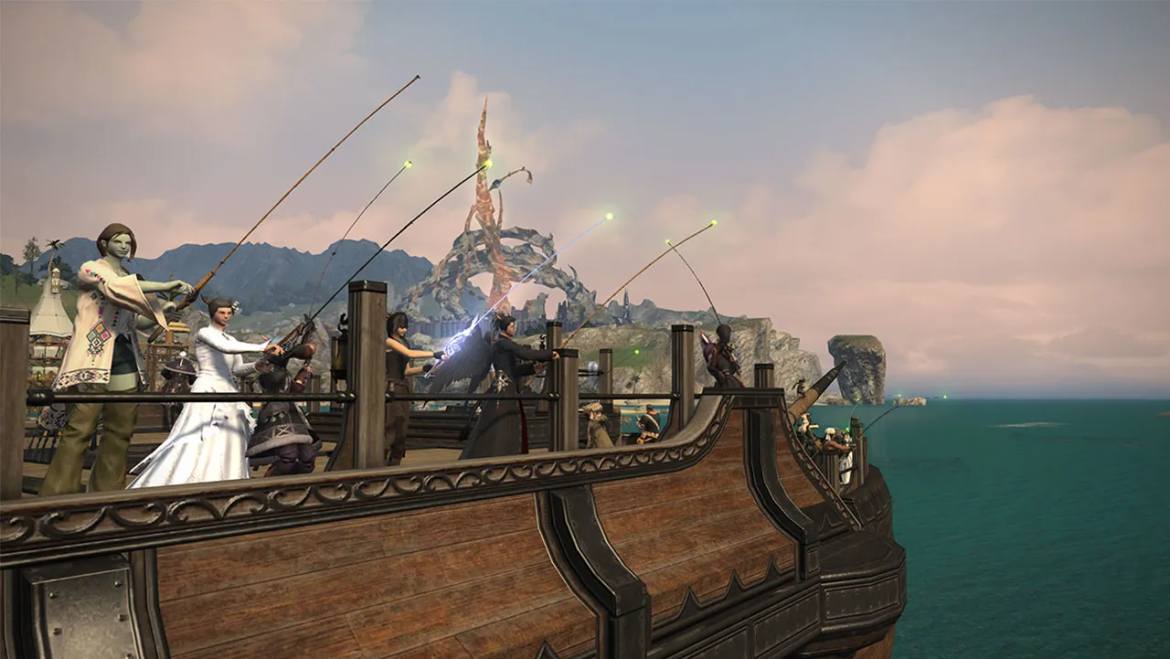Welcome back readers.
Around the site, Kaile has cooked up a standout TMIVGV with some really choice picks. If you haven’t already done so, be sure to check it out!
This Week in Videogame Blogging is a roundup highlighting the most important critical writing on games from the past seven days.
Cerulean Coast
Let’s start things off this week with impressions and angles on new and recent games across a variety of platforms, moods, and genres.
- Zenless Zone Zero Is Stylish, Fun, And A Letdown | Kotaku
Willa Rowe finds HoYoVerse’s latest to be an exercise in style over substance. - The Comforting Tension of Still Wakes the Deep | No Escape
Kaile Hultner has a good bad time on an oil rig in the North Sea (curator’s note: Kaile works for CD). - Book of Flowers | Bullet Points Monthly
Ashley Bardhan explores the floral landscape and language of the Land of Shadow.
“A lot of Shadow of the Erdtree is empty. Fantastic landscapes—the imposing, hilly Finger Ruins of Dheo, the shimmering Cerulean Coast—are better opportunities for fatigued wandering than for action. Unlike the base game’s busy Lands Between, the far reaches of the DLC’s shrouded Land of Shadow has barely any enemies in it, or elaborate outfits, or weapons. Instead, it has flowers.”
Retro Shaders
Next up, here’s two authors who illuminate old games with new contexts in lookbacks across decades.
- EverQuest provided so much pain but I still love it | Eurogamer
Jennifer Allen looks back on the punishing, gratifying experience of one of the greatest MMOs to ever do it. - I’m Tommy Pickles, and I’m Here to Get Shit Done | Unwinnable
Megan Bidmead revels in the surreal horror of a PS1 Rugrats game.
“Part of me is starting to give up hope of ever waking up again. My bones ache. And my legs are cold. My legs are always so cold. I long for a hug, and milk, and trousers.”
Simulation and Sport
History and design analysis come together in this pair of longform reads on key games and their impacts.
- Starcraft (A History in Two Acts) | The Digital Antiquarian
Jimmy Maher looks at the game which both calcified Blizzard’s design ethos and established gaming as a national sport. - Well That Doesn’t Sound Like Fun | Strange Matters
Elizabeth Sandifer probes the ideological and ontological limitations of simulation in tabletop play.
“Sure, Wehrle could have added another two pounds to the box and $30 to the price tag and amped up his complexity even further with more detailed modeling of India – and no doubt still found people willing to splash out for the metal coin upgrade. But there’s an insurmountable problem that one quickly runs into, which is that board games are simply a bad fit for depicting the atrocities of empire.”
Crystal Tools
Here we’ve got a Final Fantasy-themed section, looking at the two most recent releases in the series and their contributions to genre and remakes.
- Looking for the Future – Final Fantasy XIV: Dawntrail | Pixpen
Sam Howitt logs into a realm re-reborn but finds it’s growing a little formulaic. - Final Fantasy VII Rebirth, Remakes, and Anti-Revisionism | Paste
Perry Gottschalk extols the virtues of remaking in differently rather than just remaking it better than you remember it.
“When we talk about remakes and remasters, we concern ourselves mostly with the act of comparison. We talk about the cel shading, the low contrast environments, and the fog. We talk about the pursuit of graphical fidelity and how it harms artistic intent. Depending on our allegiances, we spurn or praise older hardware based on the capabilities they provided or denied. Regardless of any of these talks, we ultimately look at the ways we felt when playing one game versus another.”
Super Affective
For our concluding section this week, here are two pieces that place precedence on pathos.
- The Heroes Around Me: Hope, heartache, and an unforgettable story | Kimimi The Game-Eating She-Monster
Kimimi plays an adventure game of life, grief, and family in rural China. - the incoherence of dread | Medium
Matthew Pon traces an emotional thread through a series of media objects.
“In a world increasingly flooded with AI generated content devoid of life and meaning, overflowing with hallucination — Immortality achieves: through non-linear means but still reflective of our desire to understand; a conjuration of dread that feels authored and personal. We feed the machine our morbid curiosity to see not what an algorithm tweaked with obscured motivations will return to us, but how the team wished to guide an experience uniquely tailored to the questions we wished to ask.”
Subscribe
Critical Distance is community-supported. Our readers support us from as little as one dollar a month. Would you consider joining them?
Contribute
Have you read, seen, heard or otherwise experienced something new that made you think about games differently? Send it in!


